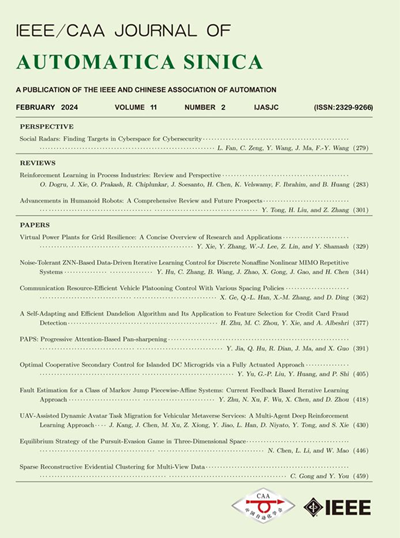用模式挖掘增强进化算法,解决稀疏的大规模多目标优化问题
IF 15.3
1区 计算机科学
Q1 AUTOMATION & CONTROL SYSTEMS
引用次数: 0
摘要
稀疏大规模多目标优化问题(SLMOPs)是科学和工程领域的常见问题。然而,大规模问题代表着决策空间的高维度,要求算法利用有限的计算资源穿越广阔的空间。此外,在稀疏的情况下,帕累托最优解中的大多数变量都为零,这使得算法难以有效识别非零变量。本文致力于解决 SLMOPs 带来的挑战。首先,我们引入了为挖掘最大和最小候选集而定制的创新目标函数。这一实质性改进极大地提高了频繁模式挖掘的效率。这样,候选集的选择就不再基于它们所包含的非零变量的数量,而是基于特定维度内非零变量的更高比例。此外,我们还揭示了一种新颖的关联规则挖掘方法,它能深入挖掘非零变量之间错综复杂的关系。这种新方法有助于识别稀疏分布,从而加快降低目标函数值。我们在八个基准问题和四个真实世界的 SLMOP 中广泛测试了我们的算法。结果表明,我们的方法在各种挑战中都能获得有竞争力的解决方案。本文章由计算机程序翻译,如有差异,请以英文原文为准。
Enhancing Evolutionary Algorithms With Pattern Mining for Sparse Large-Scale Multi-Objective Optimization Problems
Sparse large-scale multi-objective optimization problems (SLMOPs) are common in science and engineering. However, the large-scale problem represents the high dimensionality of the decision space, requiring algorithms to traverse vast expanse with limited computational resources. Furthermore, in the context of sparse, most variables in Pareto optimal solutions are zero, making it difficult for algorithms to identify non-zero variables efficiently. This paper is dedicated to addressing the challenges posed by SLMOPs. To start, we introduce innovative objective functions customized to mine maximum and minimum candidate sets. This substantial enhancement dramatically improves the efficacy of frequent pattern mining. In this way, selecting candidate sets is no longer based on the quantity of non-zero variables they contain but on a higher proportion of non-zero variables within specific dimensions. Additionally, we unveil a novel approach to association rule mining, which delves into the intricate relationships between non-zero variables. This novel methodology aids in identifying sparse distributions that can potentially expedite reductions in the objective function value. We extensively tested our algorithm across eight benchmark problems and four real-world SLMOPs. The results demonstrate that our approach achieves competitive solutions across various challenges.
求助全文
通过发布文献求助,成功后即可免费获取论文全文。
去求助
来源期刊

Ieee-Caa Journal of Automatica Sinica
Engineering-Control and Systems Engineering
CiteScore
23.50
自引率
11.00%
发文量
880
期刊介绍:
The IEEE/CAA Journal of Automatica Sinica is a reputable journal that publishes high-quality papers in English on original theoretical/experimental research and development in the field of automation. The journal covers a wide range of topics including automatic control, artificial intelligence and intelligent control, systems theory and engineering, pattern recognition and intelligent systems, automation engineering and applications, information processing and information systems, network-based automation, robotics, sensing and measurement, and navigation, guidance, and control.
Additionally, the journal is abstracted/indexed in several prominent databases including SCIE (Science Citation Index Expanded), EI (Engineering Index), Inspec, Scopus, SCImago, DBLP, CNKI (China National Knowledge Infrastructure), CSCD (Chinese Science Citation Database), and IEEE Xplore.
 求助内容:
求助内容: 应助结果提醒方式:
应助结果提醒方式:


